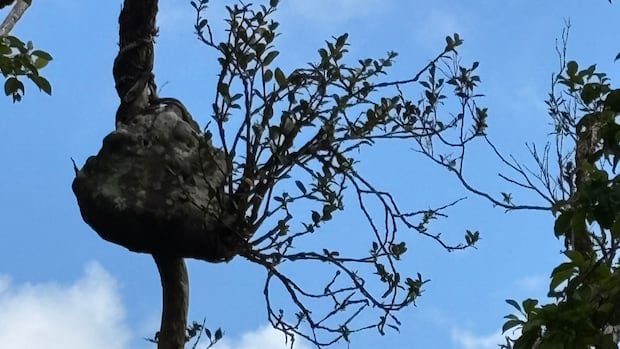In Fiji, a unique plant species called Squamellaria has been discovered to host two rival ant colonies within its bulbous structure. This surprising find challenges the conventional understanding of ant behavior, known for its aggression and territorial nature.
A recent study published in Science by Guillaume Chomicki and his team from Durham University reveals how Squamellaria plants facilitate cohabitation of warring ant species by constructing separate compartments within their hollow tubers. These compartments act as individual living spaces with distinct entrances, akin to a landlord-tenant relationship.
Squamellaria plants, being epiphytes, lack traditional roots and rely on external sources for nutrients. The ants benefit from these tubers as protective shelters, while in return, they contribute detritus and waste that nourish the plant.
To maintain harmony, the plant genetically creates a network of galleries within the tubers, ensuring that ant colonies remain segregated. When researchers disrupted these barriers, chaos ensued as the ants engaged in deadly confrontations, highlighting the importance of compartmentalization for coexistence.
Aaron Fairweather, an entomologist, commended the study’s findings for shedding light on the intricate interactions between plants and ants. Ants are known to engage in fierce battles, especially when encountering different ant groups, emphasizing the need for structured living arrangements like those provided by Squamellaria plants.
The study underscores the remarkable ability of Squamellaria plants to foster symbiotic relationships with multiple ant species, challenging previous assumptions about the stability of such complex systems. The segmented compartments within these plants serve as efficient solutions for promoting cooperation among diverse ant populations.


